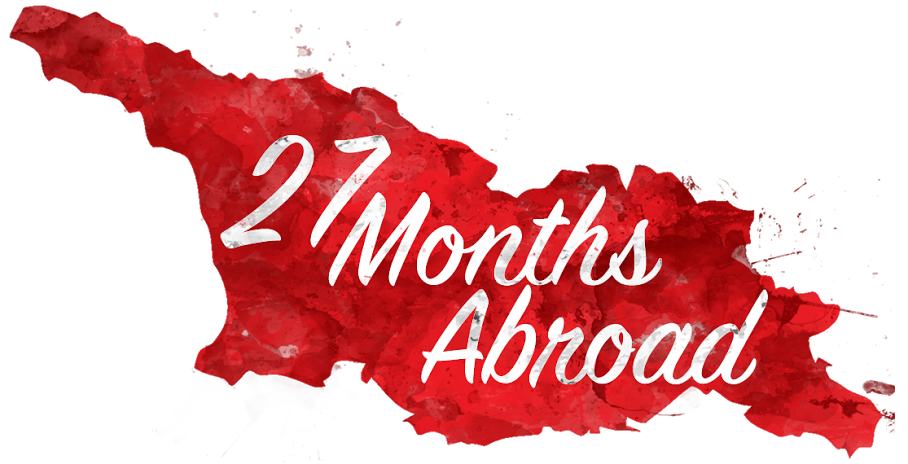I refuse to believe that you “can’t teach an old dog new tricks.” It just completely goes against the Peace Corps philosophy of Human Capacity. We build people up, not buildings. Yesterday, my goal was to teach Gmail and Google Drive to our community workers. I wanted to increase their technological skills so that they could collaborate with each other in a more efficient and secure way. (Read my previous blog post for more details).

Before I started my PowerPoint presentation, I saw some blank, unhappy looks. One with a slight annoyed tone of voice protested, “არ ინტერნეტი მაქვს (ar interneti makvs).”

Perfect comeback in hand I said, “According to the needs assessment we conducted with all of you, I am aware you have internet once a week.” Bam! She continued glaring me down, “Tea told me that you are able to access internet at a cafe, or school, or someone’s else’s home since you access your Facebook at least once a week.” Double Bam. Of course, I said this with a smile on my face and I was very friendly and diplomatic.

To avoid further discouragement, I had my coworker hand them printed versions of my PowerPoint presentation. I explained that when they log-on to the internet, having the instructions with screenshots will enable them. This way they feel more confident to start using Gmail on their own. Providing this explanation helped ease them up a bit.
I started the training with why Gmail is better than Facebook. I knew that I needed to get their buy-in and many Georgians (especially in the villages) are convinced that Facebook is the ultimate end all-be all. Explaining that World Vision has child protection policies and how Google can increase their privacy got several nods of approval.
However, the second I started with the technical portion of the presentation, I saw overwhelmed expressions. Some of the community workers looked as if I was teaching them Chinese.

I tried to increase participation and involvement by having them come to the laptop and send a test e-mail. I tried asking questions to see if they understood the material we just reviewed. The “asking questions” method completely backfired. My colleague simply answered my questions for them in Georgian. He did not allow them to ask and fail. Therefore, I can’t tell how much they actually grasped the new information. Allowing an individual to answer a question wrong and have them correct themselves is such an American concept. Georgians answer questions for each other. They truly believe that they are helping their friend and saving face.
The second part of the presentation focused on Google Drive. To my surprise, they loved the idea. None of them have heard of it before, but they were interested in knowing more. The idea that you don’t have to carry a flash drive was liberating. The idea that you can access your documents anywhere with internet was freeing. The fact you can save attachments directly from your e-mail to the drive was mind-blowing.

But they did truly learn how to use it? Nope. Can they go home and replicate the tricks at home? Another no. We ended my presentation with my boss telling me that this simply serves as an introduction. We will most likely do one on one meetings with each community worker on how use to Gmail. Even something as “simple” as teaching someone how to use e-mail takes time.
Some of us newbie volunteers don’t realize how slow development can be. Some people back home think that Peace Corps Volunteers create so much change and increase human development ten-fold. The truth is that human development can be painfully slow. It is not like America is much faster than the developing world. In the United States, it took about a hundred years from the Civil War to the Civil Rights Act. Therefore, to enact a change in a country that is as old is time might take longer. The United States was born as country by being rebellious against the British. Georgians, however, only survived as a country because they were stubborn (and rightly so) to keep their language and culture when the Russians occupied them.
Therefore, when you mix a culture of holding onto traditions with a world that is vastly changing, you get interesting results. Having worked in Silicon Valley, each calendar year is equivalent to dog years. Things change so FAST in the Bay Area. However, some parts of Georgia is catching up on things San Francisco would consider outdated years ago.
It leads me to think that there will be a huge technological stratification between the rich countries and the poor countries. There is already a huge stratification on health care and with human rights among various countries. If the U.S does not take the time to think and invest in the other countries, a huge polarization of technological skills will take place. From an ethical and business perspective, it just cannot be good for entire populations and markets to be completely left behind.
Therefore I take pride and joy that I’m contributing to the human capacity of my fellow community members. Even though it sounds silly to Americans that I’m literally teaching someone how to use e-mail, I’m contributing to increasing the technological skills of others. I’m trying to ensure that at least 7 middle-aged women are not left behind on our technological wave of our era. Change is small. But done right, we could contribute to increase the skills and confidence of others. Even though they sometimes they exhibit stubbornness and unwillingness to do so.
